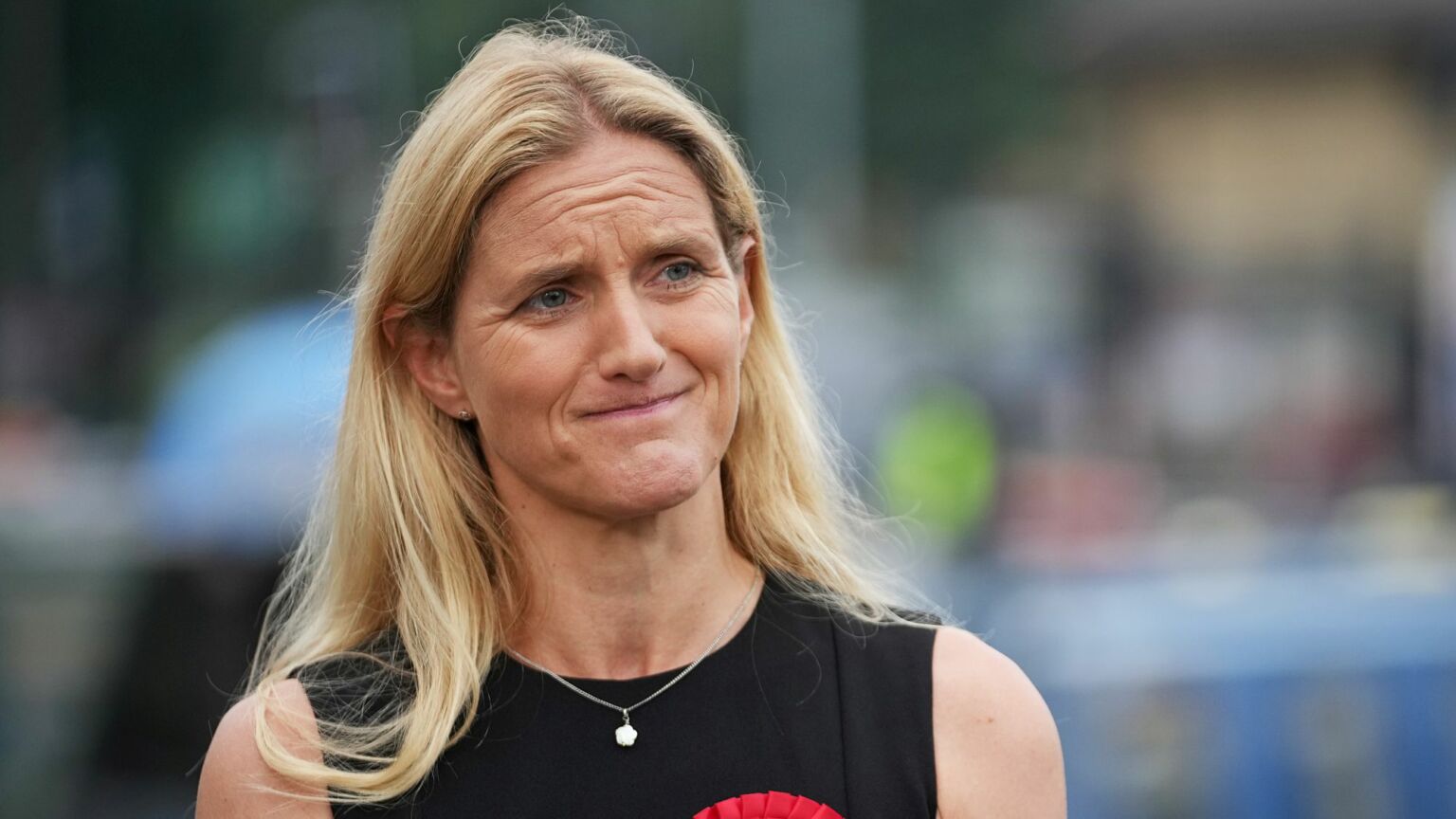The assisted-dying bill must be put out of its misery
The ‘safeguards’ promised by Kim Leadbeater are being torn up before our eyes.

Want to read spiked ad-free? Become a spiked supporter.
Kim Leadbeater’s Terminally Ill Adults (End of Life) Bill is falling apart, one broken promise at a time.
This week, we learnt that Leadbeater, the Labour MP for Spen Valley, is to ditch one of the bill’s much-vaunted ‘safeguards’, whereby a High Court judge would be required to confirm that a person asking for an assisted suicide would not be doing so under duress. This follows warnings from the Law Society that the High Court’s involvement would put strain on an already overworked legal system.
Instead, Leadbeater now wants to establish a three-member ‘expert’ panel, led by a ‘senior legal figure’, which would be tasked with signing off applications to die. She is calling this a ‘judge-plus’ system, which is a rather Orwellian way to describe the removal of direct oversight from the High Court.
The dishonesty of Leadbeater’s move is hard to overstate. The prospect of High Court oversight may always have been impractical, but more than 60 MPs cited its inclusion in the bill as the reason they voted for it in November. Given that the bill passed its second reading by 330 to 275, it’s fair to say this promised safeguard was pivotal in getting it over the line. Leadbeater knew this better than anyone: she repeated the pledge on six separate occasions.
Her decision to now abandon this safeguard is typical of the disingenuous way she and her supporters have handled the bill’s passage. They have constantly said one thing to assuage doubters and rebut opponents, before promptly doing another.
Speaking in the House of Commons in November, Leadbeater said a vote at the second reading was a ‘vote to continue the debate’ and promised to subject the bill to ‘line-by-line-scrutiny’. She has since attempted to shield the bill from real scrutiny of any sort.
Earlier this month, when the bill wound its way to its first committee hearing, Leadbeater’s first act was to make sure the selection of expert witnesses occurred in secret. Unsurprisingly, those chosen were overwhelmingly in favour of assisted suicide – of the eight international experts and nine legal experts, none was opposed to assisted suicide.
Moreover, the committee decided not to hear from a single Canadian witness, despite the important lessons that can be learned from Canada’s experience of legalising assisted dying. Introduced in 2015, assisted dying was initially presented as a last resort for terminally ill patients suffering from incurable pain – just as it is being presented in Leadbeater’s bill. Within the space of just a few years, however, Canada has effectively made assisted dying available to pretty much anyone who is struggling with an illness or a disability. Euthanasia is now the fifth-leading cause of death nationwide and it will likely rise even higher. Soon, people suffering from mental-health issues, such as anorexia, will be eligible for an assisted death.
Aside from ignoring Canada, Leadbeater was clearly determined to exclude any witness who might cast a critical light on her bill. Last month, she and her backers also tried to exclude the Royal College of Psychiatrists (RCP) from giving evidence, despite questions around coercion, applicants’ mental states and the role played by psychiatrists being central concerns for the bill. Leadbeater eventually reversed the decision to exclude the RCP after a public backlash.
Yet despite the parliamentary process being firmly weighted in favour of proponents of assisted dying, they have still managed to put their foot in it. Take Australian MP Alex Greenwich, a member of the New South Wales legislative assembly. He told the committee that assisted dying was a ‘form of suicide prevention’, unwittingly revealing the doublespeak that lies behind so much assisted-suicide advocacy. Even Leadbeater herself is dropping clangers. This week she told the BBC that her bill still had ‘too many safeguards’.
It was an all too telling remark. Assisted-dying laws have a tendency to turn into slippery slopes, as more and more people are made eligible for a state-sanctioned death. In Canada and the Netherlands, the availability of a state-assisted suicide has expanded well beyond the scope initially envisaged by lawmakers, smashing through any safeguards in the process. Indeed, in an especially sinister turn, the Dutch state is now granting those with mental-health issues the right to die. To date 39 people listed with ‘learning disabilities or autism spectrum disorder’ have been euthanised.
As one of the key safeguards in Leadbeater’s assisted-dying proposals is summarily scrapped, it’s clear that Britain is on the slippery slope before this bill has even become law. The sooner the bill is killed, the better.
Hugo Timms is an intern at spiked.
Who funds spiked? You do
We are funded by you. And in this era of cancel culture and advertiser boycotts, we rely on your donations more than ever. Seventy per cent of our revenue comes from our readers’ donations – the vast majority giving just £5 per month. If you make a regular donation – of £5 a month or £50 a year – you can become a and enjoy:
–Ad-free reading
–Exclusive events
–Access to our comments section
It’s the best way to keep spiked going – and growing. Thank you!









Comments
Want to join the conversation?
Only spiked supporters and patrons, who donate regularly to us, can comment on our articles.